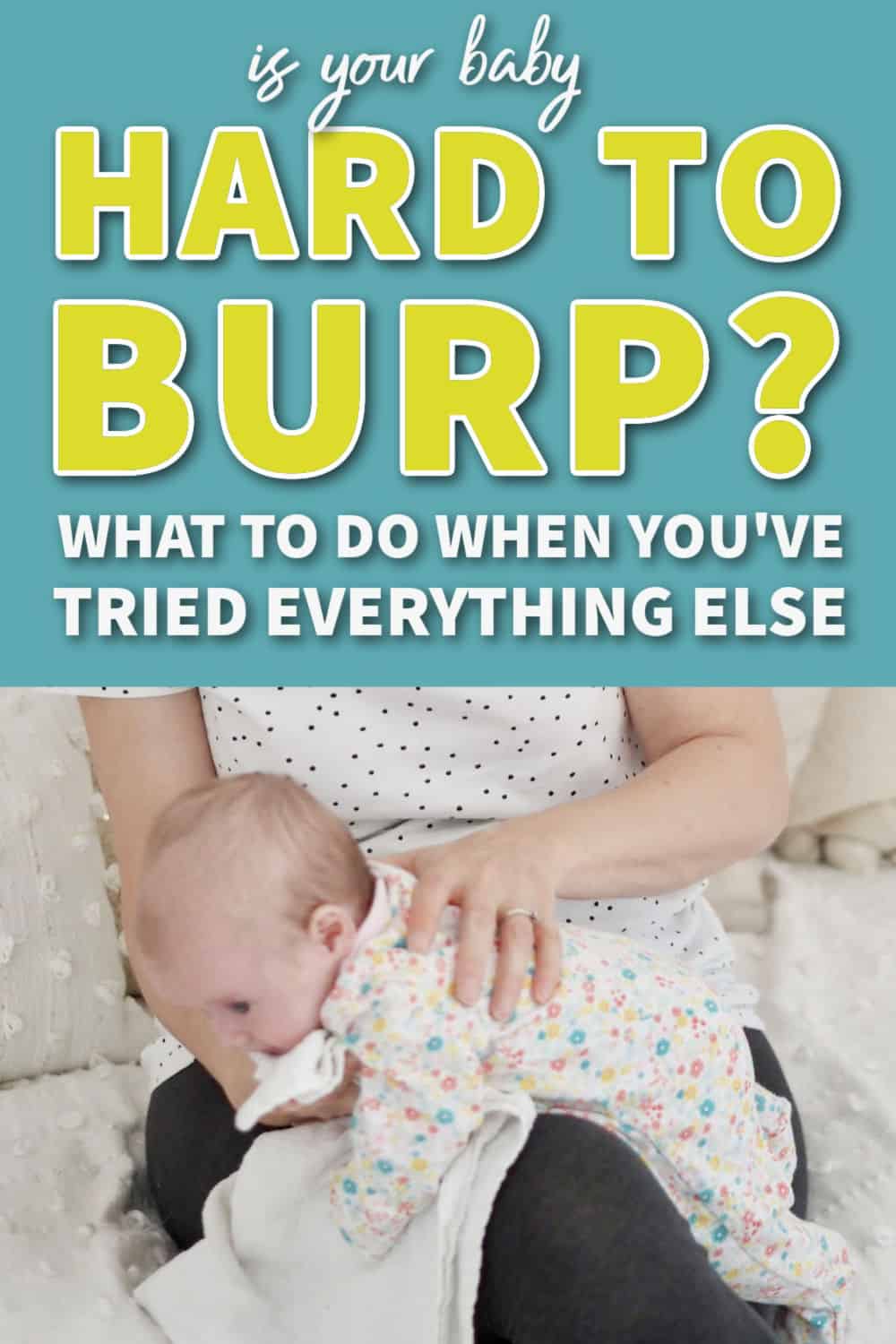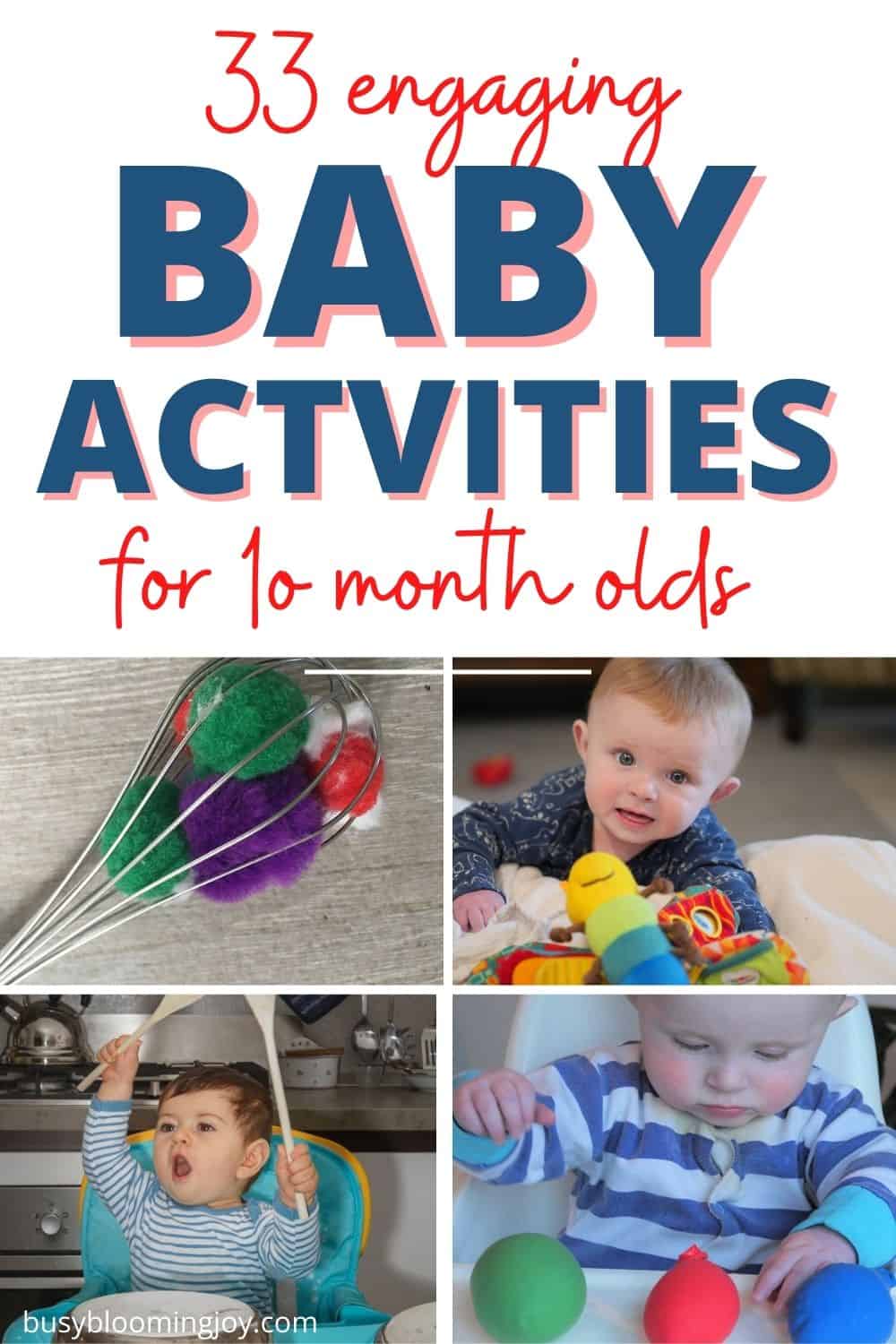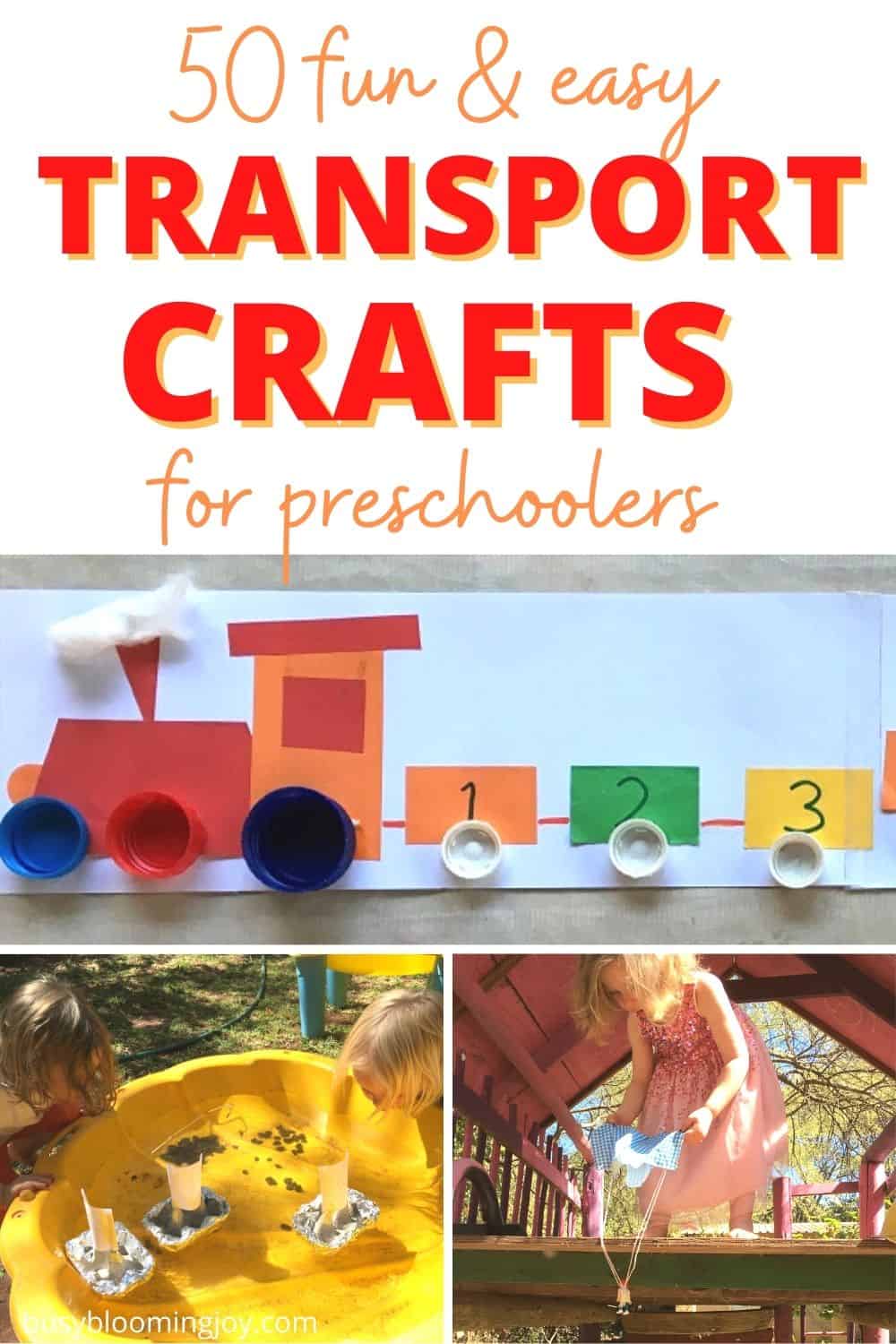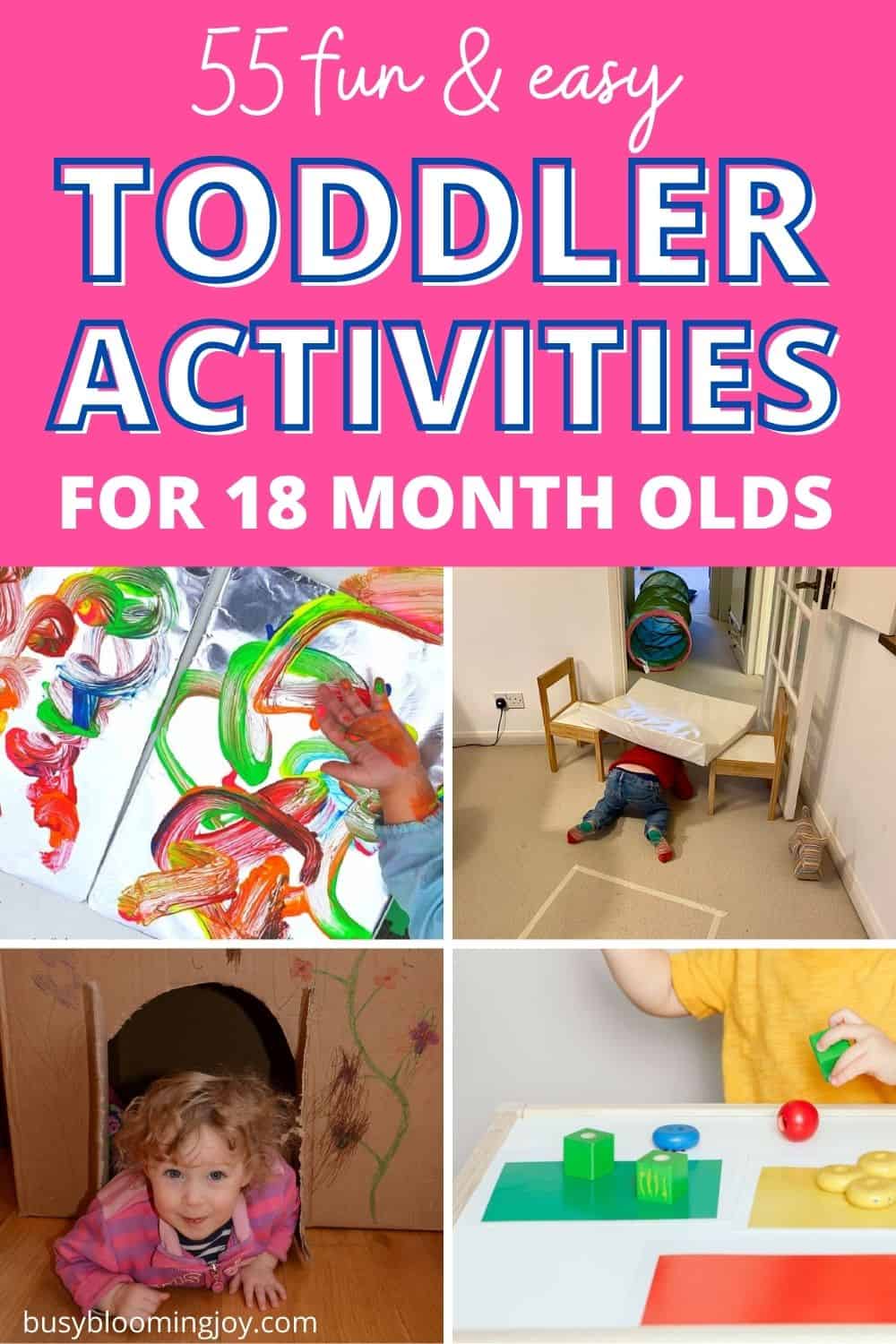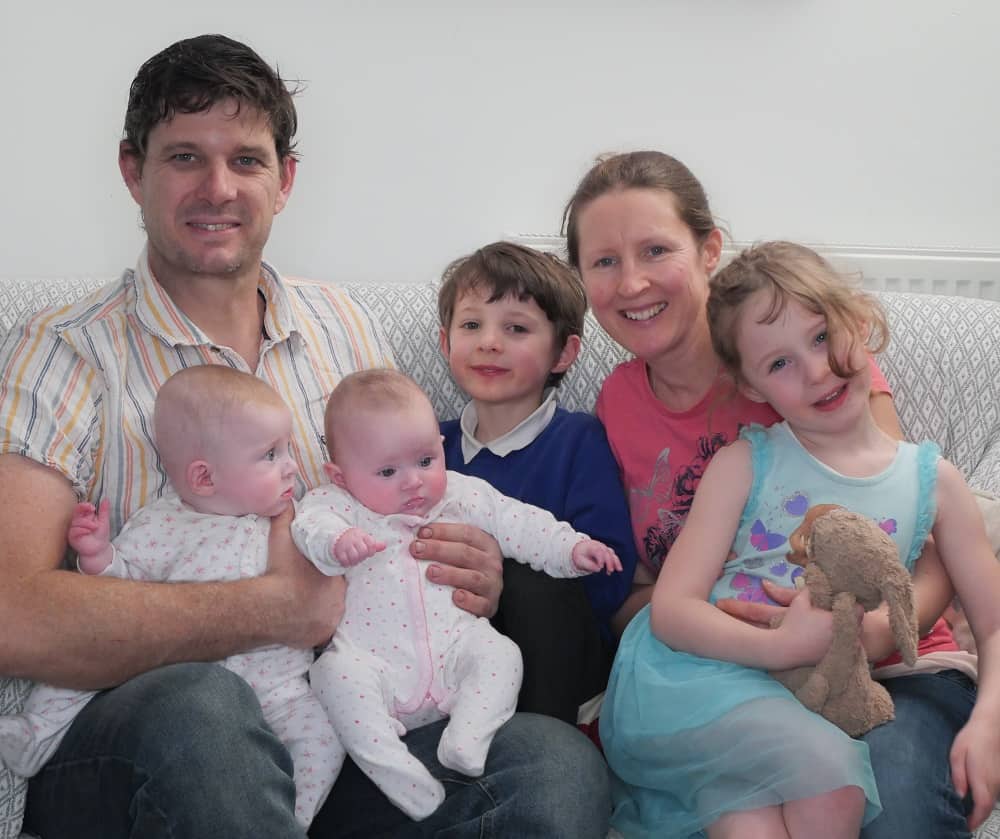Newborns need to sleep, eat and burp. That’s about it. Sounds soooooo simple, but each one of those can be soooooooooo challenging, right? For baby and therefore for you.
Getting those air bubbles up and out is on the long list of things you need to become skilled at in the first few weeks if you want a content little babba. And sometimes those gas bubbles do just pop right out with virtually no effort.
Other times, they just don’t. Your baby won’t burp and has gas.
If you have a hard-to-burp baby you can be left patting and bouncing for an eternity. It’s a frustrating process if you can’t get baby to burp.
In the mean time, your newborn squirms and wriggles and cries in discomfort.
You need to learn how to burp a newborn baby that won’t burp.
Table of Contents
ToggleDo I really need to burp my baby?
Ideally you should burp your newborn during and after each feed. This is because they tend to swallow a lot of air when feeding, it’s almost impossible to avoid.
With an immature digestive system, the trapped wind can easily cause discomfort, meaning a cranky baby.
As they grow and develop they become more efficient feeders and gradually learn to eat without taking in quite as much air.
Some babies are gassier than others – there are lots of factors that affect how much gas your baby ingests. Bottle-fed babies tend to swallow more air than breastfed babies.
Fast milk flow (e.g. due to a fast let-down or incorrect bottle nipples) can cause baby to gulp and ingest excess air. If this is the case try a different feeding position and use age-appropriate nipples.
Whatever the feeding method, or even if you can’t see evidence of discomfort, give your baby the chance to release excess bubbles through burping.
When should I burp my newborn?
If you’re feeding, your baby will generally tell you when they need to burp by stopping and refusing to eat anymore. That’s your cue to burp your baby.
This refusal to feed may be accompanied by other signs and colick symptons.
Signs baby needs to burp:
- red, grimacing face
- crying, fussiness and general irritability
- clenched fists, flailing arms and legs
- drawing knees to chest
- stiff and tense in the body
- high-pitched crying
Related post: 6 newborn baby cues you need to know
If they don’t show any of these signs, offer them the chance to burp at least twice every feed. Burp your newborn midway and again at the end if breastfeeding, or every 2-3 ounces if bottle feeding.
Gassier babies may need burping every few minutes during breastfeeding or every few ounces if bottle-fed.

Why won’t my baby burp?
It’s possible that your baby won’t burp because she simply doesn’t need to. If over the age of 6 months, this could well be the case.
However, newborns will almost for certain have taken some air in when feeding, it’s almost unavoidable, so will probably need help burping.
It’s more likely that you have a hard-to-burp baby on your hands. Those air bubbles are there and have just got a little stuck and your baby won’t burp.
This may mean that the way you normally burp your baby just don’t do the job, leaving you stuck with a baby that won’t burp and has gas. Or worse still, a baby that can’t burp and is in pain.
How to burp a baby that won’t burp and has gas
Here are some tips on the best ways to burp a gassy newborn, specifically for the hard to burp baby. These first two are the most important.
#1 Use a burping position that puts firm pressure on the lower abdomen
A common burping position is to hold baby facing your chest with their head over your shoulder. All you’re really achieving by doing that is holding baby upright. This may be enough for lots of babies.
However, if your baby won’t burp, you want to put firm pressure on the lower abdomen, just below the ribcage. So for this particular burping position, make sure baby is really high up, almost over your shoulder.
A shoulder burp position high up creates a lot of pressure on the lower abdomen and helps expel gas in a hard to burp baby.

#2 Rub and squeeze, don’t pat
Light patting on the back won’t cut it with a hard-to-burp baby. Some even say this may be counterproductive; that all it does is break down big gas bubbles into smaller ones.
If your newborn won’t burp, instead of gentle pats, firmly rub your baby’s back right from the base in a single gentle motion, all the way to the base of their neck. You want to try and push and squeeze that trapped wind up and out of your baby.
How to burp a newborn that won’t burp – the best burping positions to try
#3 Try different ways to burp a baby
If your baby won’t burp, you may simply need to experiment with different positions and ways to burp a baby. There are a few! And then several variations of…
In my experience, I’ve found the following burping positions the most effective when trying to burp my hard-to-burp babies:
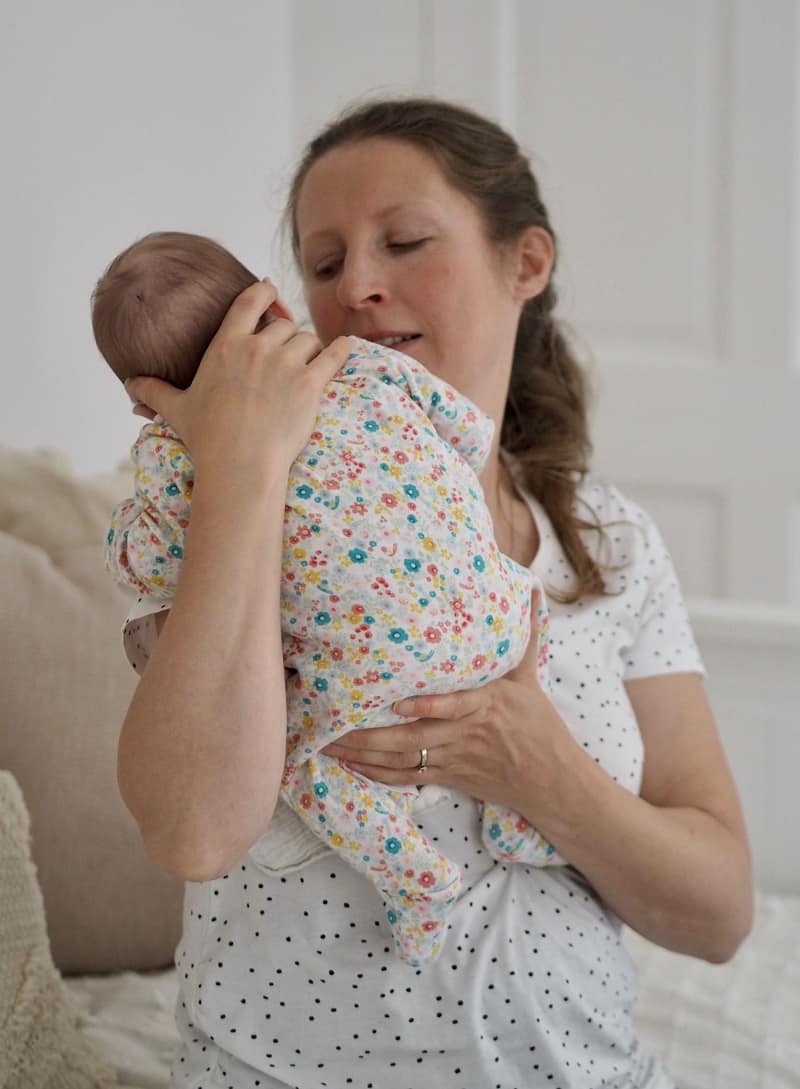
A – The over-the-shoulder hold (classic for all babies, including a newborn that won’t burp)
For a hard-to-burp baby you want to ensure baby is way up, so their upper body is higher than your shoulder, putting pressure right where it’s needed.
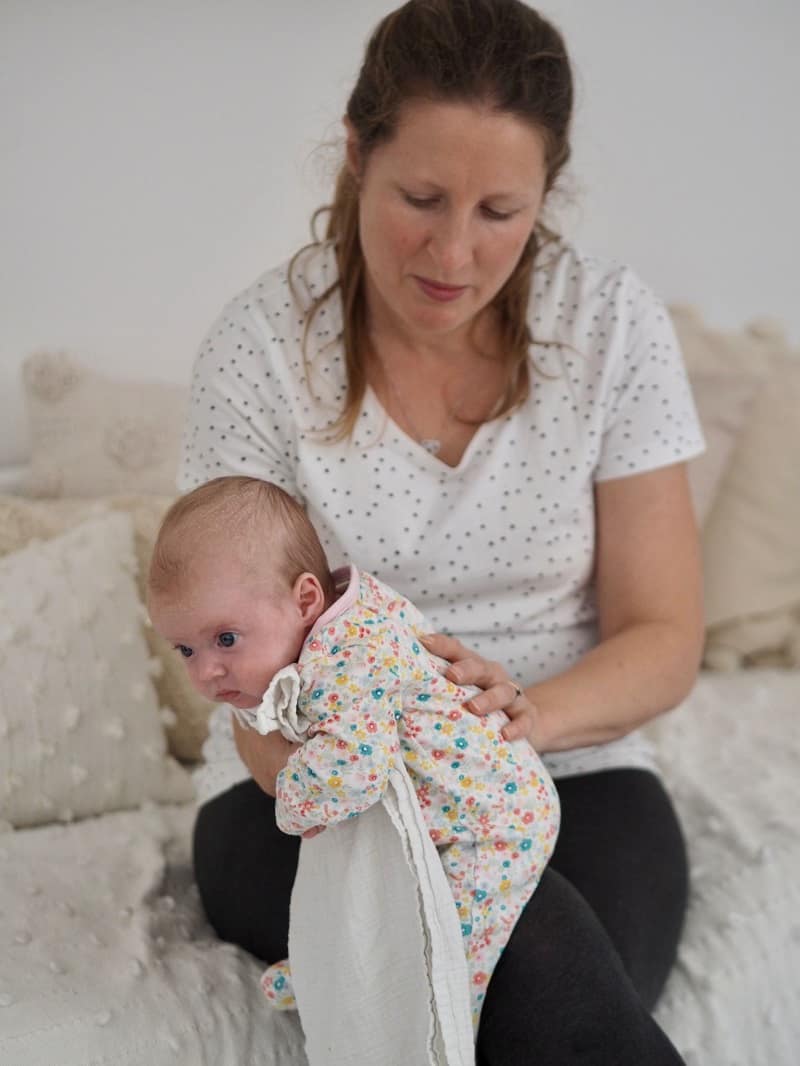
B – In a sitting position, while you’re sitting (great if your baby won’t burp for an extended period of time)
So have baby sitting on one of your legs while you’re sitting comfortably, facing right or left, slightly tipping forwards while your hand supports the head and neck.
It’s the tipping forwards that will create that firm pressure on the lower abdomen. You can also rub baby’s back with your other hand.
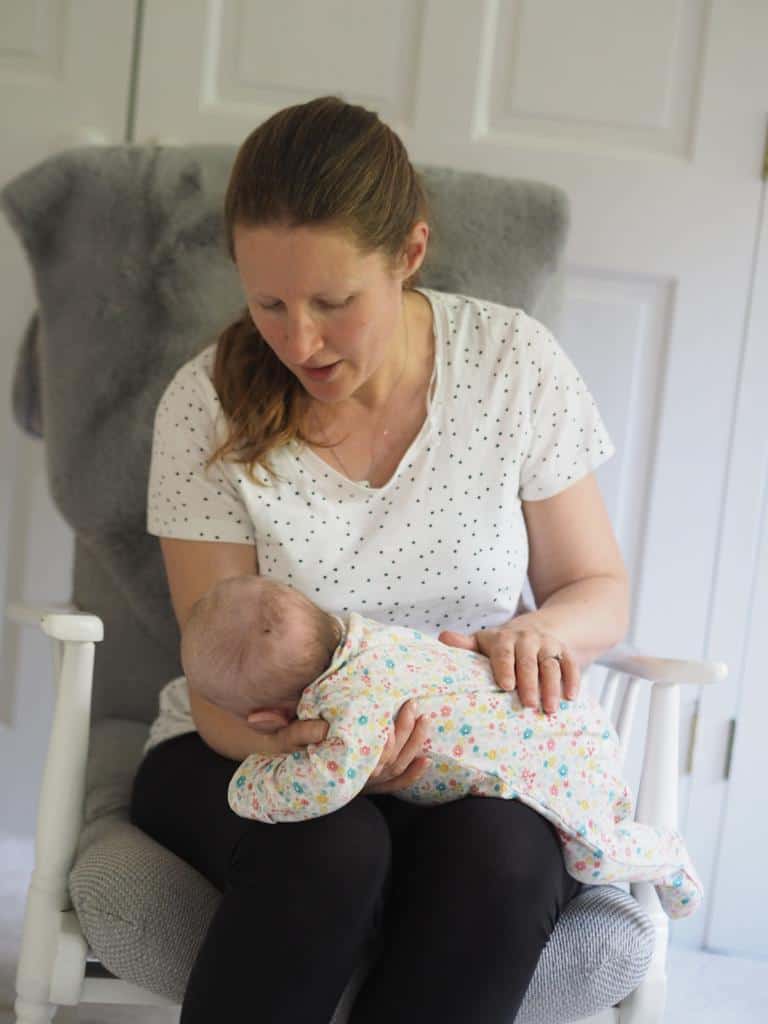
C – Lying on baby’s tummy across your lap (good for tiny newborns that won’t burp)
Think tummy time, just on your lap, while supporting baby’s head with one hand. Position baby so the lower abdomen is over one of your legs, providing pressure to help shift that stubborn burp.
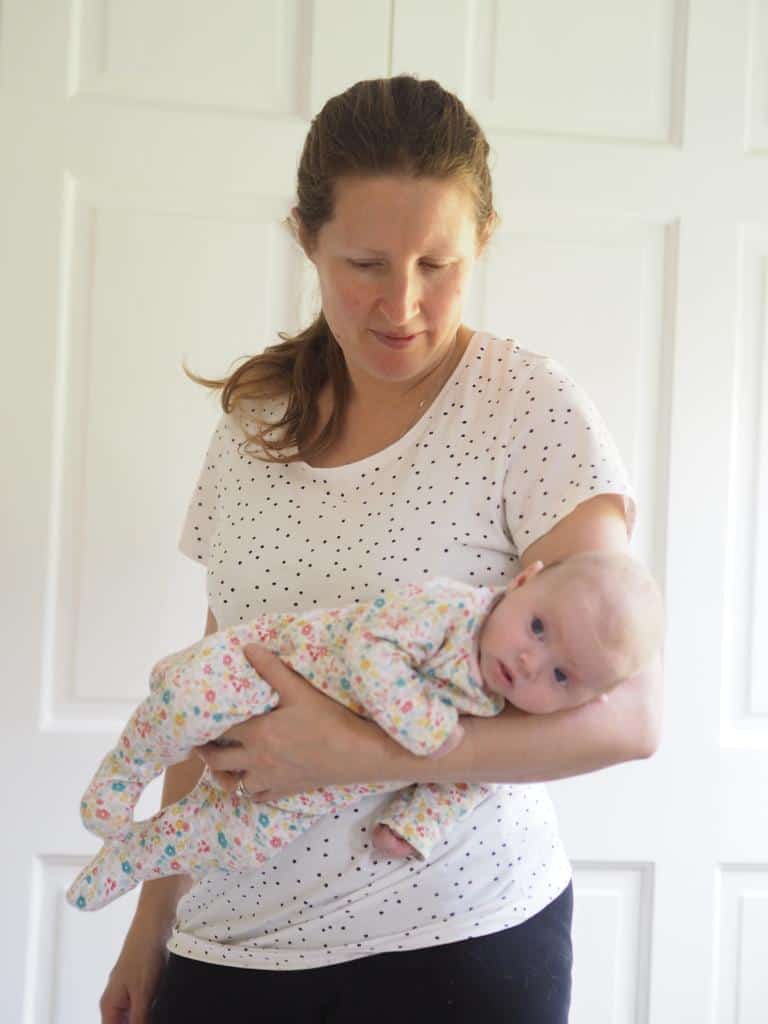
D – The colic carry (ideal if baby won’t burp and is very uncomfortable)
Lie baby over your forearm, cupping their crotch with your hand, so the head is towards your elbow. This burping position naturally provides pressure, encouraging a burp and will also be comfortable if your hard to burp baby is in pain.
This is a favored for gassy or reflux-prone babies.
You can also rub their back from bottom to top with your free hand.
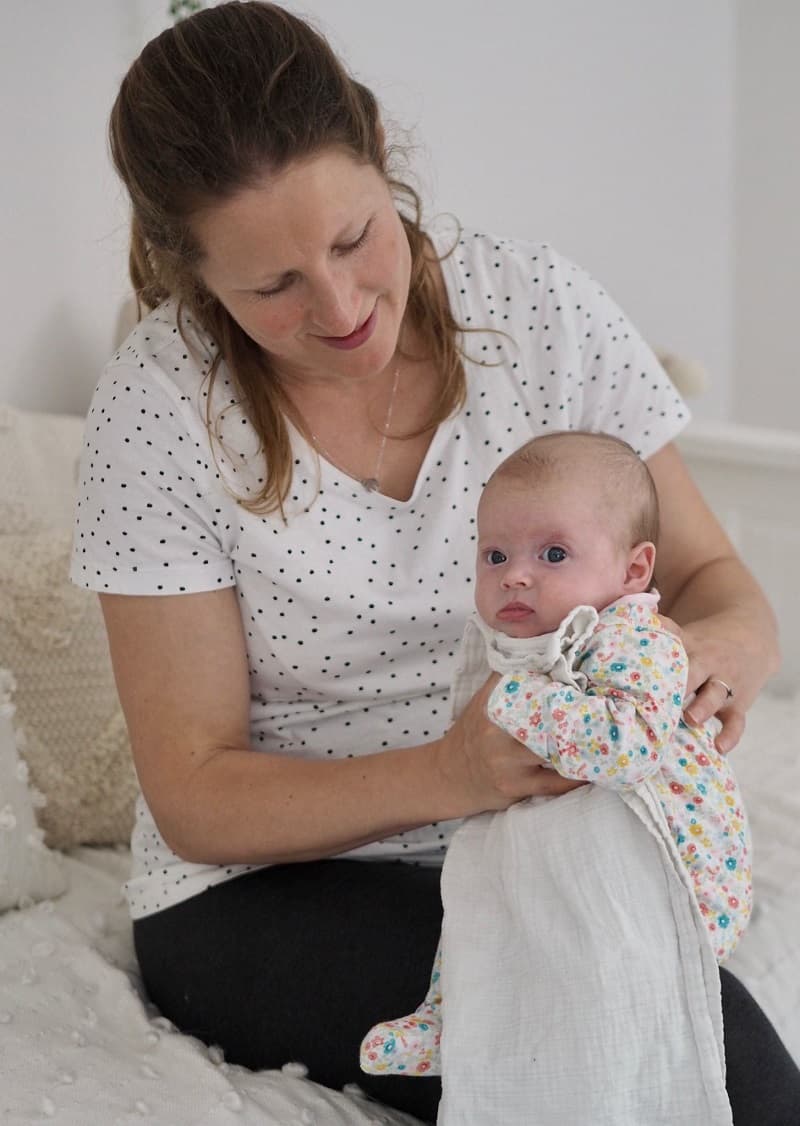
E – The “rotate & smoothe” (in my opinion, the best way to burp a baby)
Sit your newborn on your knee in an upright position. Position your hand so it supports the head and neck – you actually want your thumb and forefinger to support the chin and push ever so slighly upward so you’re ensuring your baby’s airway is nicely open.
Now to rotate! Move your baby’s top half in circular movements, pivoting around their hips. This gentle movement helps put pressure in the right spot to release trapped wind.
You can also add in some “smoothe”. Run your other hand firmly upwards along the back, from the tail bone towards the head. I’ve always found this burping position really effective and I reckon it’s the best way to burp a baby.
If you’re baby won’t burp, try it!
More tips on how to burp a newborn baby that won’t burp
#4 Add in gentle body movements
The reason that the last burping position works so well is that gentle rotating movement. Whatever position you have your hard-to-burp baby in, add in some movement to help dislodge those stubborn air bubbles.
This is easier in some positions than others; positions B and D work well.
- In #B above, you can simply bounce your baby while she’s sitting by moving your leg up and down.
- In #D you can gently and slowly swing the arm your baby is lying over.
A strategic leg push can help a baby that won’t burp and has gas
If your baby is content to lie on her back (many won’t be if they have trapped wind) you can also try:
- BICYCLE LEGS – take a foot in each hand and move your baby’s legs as if pedaling a bike.
- LEG PUSHES – again, take a foot in each hand and push baby’s legs up towards her belly button, hold in this “frog position”, release and repeat.
#5 Keep switching baby burping positions
This also works on the basis of movement – the motion of moving your baby from one position to another may be all that is needed to bring that gas bubble up. If your baby won’t burp, this is an easy one to try.
What to do if your baby won’t burp and has gas
If your baby still won’t burp, definitely don’t panic! If you’ve tried everything mentioned above with your hard-to-burp baby and you’re still not winning, try these next tips.
#6 Wait
Give it time. Patience may be all that you need. That burp baby come when you’re least expecting.

#7 Hold baby upright
Hold your newborn upright so that if and when baby does burp, spit-up is minimized. A baby bouncer can also do this job effectively once your newborn is a little older and stronger. For small newborns, carrying them in a sling, baby wrap or baby carrier, will hold them upright.
#8 Put baby in a position that alleviates any gas pains while encouraging a burp
This normally means putting baby on their front. The colic carry, burping position D above, is ideal as it leaves you with a free hand. You could also try a little tummy time if you need both hands free, but a few minutes will probably all a tiny baby can manage.
#9 Try some gassy newborn massage
Infant massage can both soothe your gassy baby and help move any trapped wind from lower parts of the abdomen to higher parts. It may even bring up a burp.
It’s not for when baby won’t burp and has gas but is very upset and crying. Baby needs to be calm and relaxed enough to do the massage.
After bath is a good time to try some simple massage excercises. Simply rub the palm of your hand in circular motions, as demonstrated in this video, which includes 6 different massage techniques: ‘around the clock’, ‘baby bicycles’, ‘scooping the sand’, ‘I love you’, ‘the sun and the moon’ and ‘the colic carry’ or ‘tiger in the tree’.
For more ways to help an agitated baby try these 7 winning strategies to calm and soothe.
#10 Settle your newborn to sleep
If your baby is starting to get tired and showing you those sleepy cues, a nap is probably going to be the best option. All about sleeping and burping up next.
Remember, it may be that your baby won’t burp because gas is not the issue, tiredness is.
If your baby has been awake a long time (as a guide, babies younger than 3 months can very rarely stay awake for longer than 2 hours without becoming overtired) and won’t burp, try settling her to sleep.
Or if the environment is very stimulating (lots of bright lights, unfamiliar faces, loud unfamiliar noises) take her somewhere quiet. You can also try holding her in a comfortable position which will also encourage a burp (e.g. the colic carry).
That’s preferable to frantically trying to wind your baby, which may only stimulate and irritate further.
#11 Try Gripe Water or gas drops
There’s no scientific evidence that either of these work and they didn’t work for my gassy babies. But some moms swear by them! And you’ve got nothing to lose, there are no harmful side affects.
What happens if your hard-to-burp baby still won’t burp?
First off, it’s important to note that there are no catastrophic consequences if you fail to get your hard-to-burp baby to bring up trapped wind. Ideally you want your baby to burp, but if it’s not happening it’s nothing to panic about.
If you can’t get baby to burp there are a few likely scenarios:
1. Baby will be absolutely fine!
This is the best option: your baby won’t burp when you try, but will burp after their next nap or at the next feed. Or another time when you’ve forgotten all about it.
2. Baby is content but brings up milk when you’re least expecting
The next possibility is that your baby won’t burp and has gas, but is comfortable and content. However, then that air bubble pops out when you’re least expecting it, along with half or even all the milk your little one took so long eating…
This often happened often in the early days with my extremely hard-to-burp baby boy twin.
The next two are more problematic…
3. Baby is gassy & uncomfortable
If your baby won’t burp and has lots of gas, this could make your baby fussy and irritable, while giving you all the signs they need to burp. Your baby may struggle to fall asleep and only want to sleep in your arms if they’re gassy.
Likewise, gas may cut naps short or disturb night sleep: it’s unlikely that a gassy baby will sleep through the night.

4. Trapped wind is forced into the gut
This is the least desirable possibility if your newborn won’t burp: trapped wind is forced down into the gut. Even if your hard-to-burp baby wasn’t uncomfortable before, these air bubbles will probably aggravate lower down and the only way out is via the other end. Explosive poop alert!
Gas bubbles in the stomach and lower down in the abdomen can be one of the causes of colic and evening fussiness, aka The Witching Hour . As I found out with my second, and particularly hard-to-burp baby daughter, excess gas due to lack of burping also made her reflux symptoms worse.
In fact, for all 4 of mine, I found it necessary to burp them at each feed as newborns.
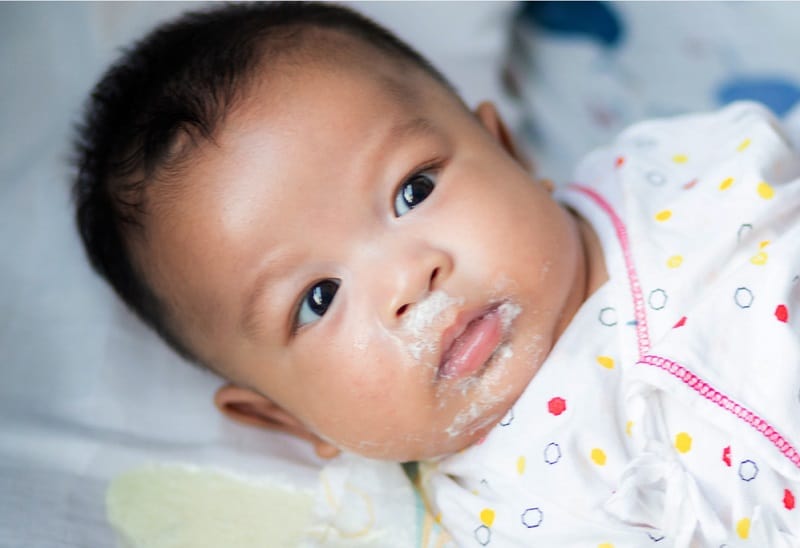
Baby won’t burp but spits up?
Your baby may spit up due to some trapped wind. As a gas bubble is expelled, a bit of milk comes too. (Wet burps.)
But newborns can spit up simply because the valve between the stomach and esophagus is underdeveloped. Instead of only allowing food to pass into the stomach, it opens when it shouldn’t.
Lying down puts extra pressure on the valve which can force it to open. Your baby can spit up without burping or releasing trapped wind.
So, sometimes spit up will be accompanied by a burp. Other times your baby may spit up without burping and have trapped wind. You could also get lots of wind up and baby still continues to spit up.
If your baby won’t burp but spits up, keep them upright after feeding and have a burp cloth ready!
Is your hard-to-burp baby gassy or simply overtired?
When babies are tired they tend to lose interest in their surroundings, stare into space and want to suck (if 6 weeks or older). (Rooting to suck isn’t only about hunger. Older babies suck for comfort.)
As they start becoming overtired they can become tense and irritable. If your baby won’t burp, tiredness may be the issue, rather than gas.
Signs that your baby is overtired include:
- frantic, jerky movements and general discomfort and irritability
- wriggling and squirming
- arching back and neck
- spitting-up
- grimacing, red-faced
- screwing up face
See how similar these are to the signs that baby needs to burp?
It can be quite difficult to tell if tiredness is the issue or your baby has gas but won’t burp. Keeping an eye on when your baby last napped and knowing their “awake time”, the time your baby can happily stay awake before needing to sleep, can really help.
Check out this post to figure out your baby’s awake times and avoid overtiredness.
Can baby choke if not burped?
You may be worried about what will happen if your newborn won’t burp before sleeping, and then spits up while alseep, lying down. Can your baby choke if not burped?
Thankfully no. There’s no risk that spitting up or vomiting while baby is lying flat on the back can cause choking. Back sleeping is the most important of the safe sleep recommendations to minimize the risk of SIDS.
If your newborn burp and spits up or vomits while asleep, any fluid will either be swallowed or find its way onto the sheets.
In any case, burping your baby doesn’t necessarily avoid spit-up.

Is it ok to put baby to sleep without burping?
If your baby is hard to burp, you might not get any wind up before they need to sleep. So you may be wondering, what if baby doesn’t burp and falls asleep?
If you’re reading this your first night home with baby don’t panic! It is ok to put your newborn to sleep without burping. This may be the best thing for them.
There are three possibilities:
- Baby settles to sleep well and sleeps as normal and may or may not burp on waking
- Baby settles to sleep well, but wakes earlier than usual due to trapped wind
- The trapped wind is forced down into the gut, causing discomfort or pain that will only be relieved after farting or pooping
Baby wakes up crying?
If your baby wakes crying, trapped wind could be the cause. You may find that after burping she’ll settle back to sleep, so it’s definitely worth a try.
A high pitch cry normally signals gas pain in the gut, but could also indicate reflux.
How to burp a sleeping baby?
So your baby falls asleep without burping. What to do next? Well, you can simply leave your baby asleep, but babies can burp while sleeping. You don’t need or want to wake them first; it’s perfectly possible to burp a sleeping baby.
Baby won’t burp at night
It’s during and after night feeds you’re most likely going to be faced with the task of burping your sleeping newborn. One benefit to night feeds is that babies normally feed slower, swallowing less air.
This probably means they won’t need to burp as much. You may even find that your baby won’t burp at night.
(The exception to all of this is if your baby has day night confusion and is more active at night.)
Tips to burp a sleeping baby
Just like when you’re burping your hard to burp baby, try and stick to these two key principles:
- hold baby in a position that puts pressure on the lower abdomen
- rub baby’s back, rather than pat: rub firmly from the base of the spine all the way up to the neck
My favorite burping positions for a sleeping baby
I’d always go for the newborn shoulder hold, with baby up and over the shoulder, while I was sitting down. Because it’s easy and requires very little energy.
For an even more comfortable position, you can lean back a little with baby on your chest and rub their back. It’s not as effective but if your baby is content and asleep, being on an incline may be enough to allow those bubbles to resurface.
If you do nothing else, simply hold your baby upright
It can often be harder to get your baby to burp if they’re asleep and if it’s the middle of the night. Plus, if you’re anything like me, your motivation to burp might be on the low side…
Simply holding your baby upright or in a semi-upright position for a set time will give your baby chance to burp, at the same time allowing their stomach to settle and reducing the chance of spit-up when you lie them down again.
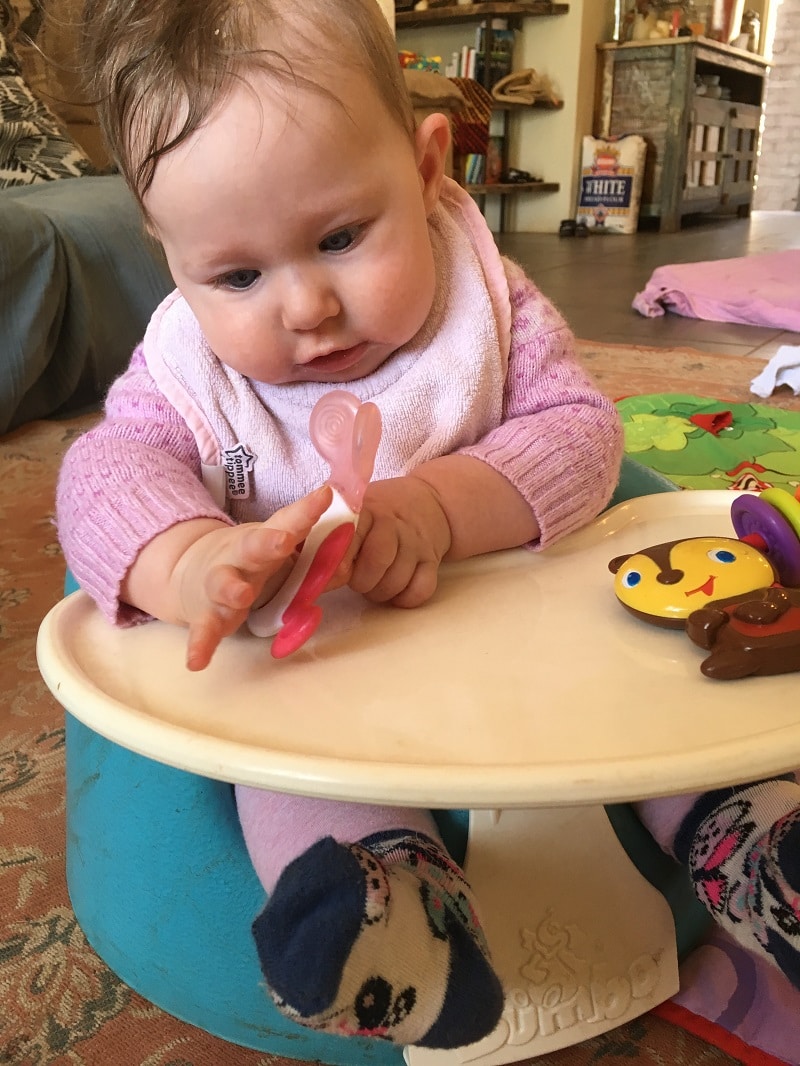
FAQS on burping a newborn that won’t burp
Do you burp infants after breastfeeding?
Some say that if you’re breastfeeding you don’t need to burp your baby. However, I always found it necessary to burp at least once during a feed as well as at the end; it’s a very individual thing.
If you have a fast let-down, as I did, you’ll probably find your baby swallows quite a bit of air and will therefore need burping.
Likewise, a poor latch and hungry, frantic gulping down of breast milk can mean your newborn will swallow more air than necessary.
If in doubt, help your baby to burp. (And if poor latch is an issue, seek the help of a lactation consultant.)

How long should burping a newborn take?
You may be wondering how much time should you spend actively trying to “burp” a baby. Well, sadly there’s no straight answer here. Some babies are quick to burp, others slower.
You may find that sometimes you get a load of burps up in a matter of minutes. Other times your baby won’t burp after half an hour or so, often the case if you have a hard-to-burp baby.
Baby won’t burp after 20 minutes?
If you’ve been trying everything and your baby won’t burp after 20 minutes, take a break and move on with your day.
There’s the possibility that your baby won’t burp whatever you do. As mentioned above, that’s ok too. In the meantime, hold your baby upright or in a comfortable position for the both of you, or settle them to sleep if needed.
(It is ok to put your baby to sleep without burping, more on that later.)
First though, check the recommendations below on how to burp a baby that won’t burp.
How often should you burp a newborn each feeding?
If your baby is a greedy guzzler and shows no signs of stopping for a break, then she may not need to burp until finished. But I’d always err on the side of caution and stop at least once for a burp break just in case.
If you’re bottle-feeding, it’s highly likely that enough air has been swallowed to warrant a few burps. The guidance for a bottle-fed baby is to burp them every 2-3 ounces.
But every baby is different, so take their lead.
Once you’ve burped your baby, continue feeding. Then burp baby again at the end, or earlier as necessary.
Of course, as your baby gets older and better at feeding, you should find they need to burp less frequently. Like everything baby, the best method is to follow their lead.
Incorporate burping into your feeding routine. Allow time for burping after a feed if you’re following any kind of schedule with your newborn.
How much should a newborn burp? Is one burp enough for a newborn?
One burp probably isn’t enough for a newborn, but of course, every baby is different. It also depends on just how gassy your newborn is when feeding. Plus, not all burps are equal.
My experience:
While my girl twin tends to have lots of little burps, at least 8, sometimes 15, in total (both during and after a feed), her brother normally has just a few (3 or 4). However, at least 1 of those is one huge belch. “Burp” certainly doesn’t cover the kind of noise he makes!
Some experts in the field
According to one expert, Philippa Murphy of BabyCues who studies the digestive biology of infants, frequent burping of at least 10 burps per feed is the absolute minimum.
While Dr Gellner from The University of Utah, is firmly on the other end of the spectrum, saying that some babies just don’t need to burp and not to worry about it.
So my advice would be to give your baby the opportunity to burp but be led by your baby.
If you manage 3 burps and your baby is content, then leave it at that. You can always keep her in an upright position to see if any more come up. Or you may find after 10 burps your newborn still seems gassy and uncomfortable. In which case carry on.
When to stop burping a baby
Again, take the lead from your baby. If they’ve brought up a few burps and are still hungry, continue feeding. Or if baby is showing tiredness cues, settle them to sleep; if particularly gassy, carry on. And so on.
In terms of age, by 6 months or when your baby starts sitting unaided, your baby will probably need a lot less help burping.
In addition, by this age they’re more efficient and effective at eating and don’t swallow as much gas. Watch for the signs that baby has gas, and burp as and when necessary, being careful to avoid confusing gassiness with overtiredness.
Why are some babies hard to burp and others easier?
Age is a big factor in how easy it is for a baby to burp. The older they are, the more physically developed they are and the easier they can bring up trapped wind.
It also helps that as your baby gets older, they’ll spend more time in a position which allows trapped wind to escape easily. A tiny newborn will spend much of their time lying down, so will need help burping. However, this doesn’t mean they’re necessarily hard-to-burp.
By contrast, an older baby that is sitting should be able to burp unaided. But, they may still need help and may still be hard-to-burp!
If baby won’t burp, don’t get discouraged
If you have a hard-to-burp baby, I feel you, it can be frustrating. It’s particularly tough when you see your baby is in pain but won’t burp. Try the different techniques and burping methors above and if you still can’t get baby to burp, keep baby comfortable and settle them to sleep if necessary.
Good luck!
________________________________________________________
If you’re looking for more tips and tricks to navigate the baby stages, try these:



